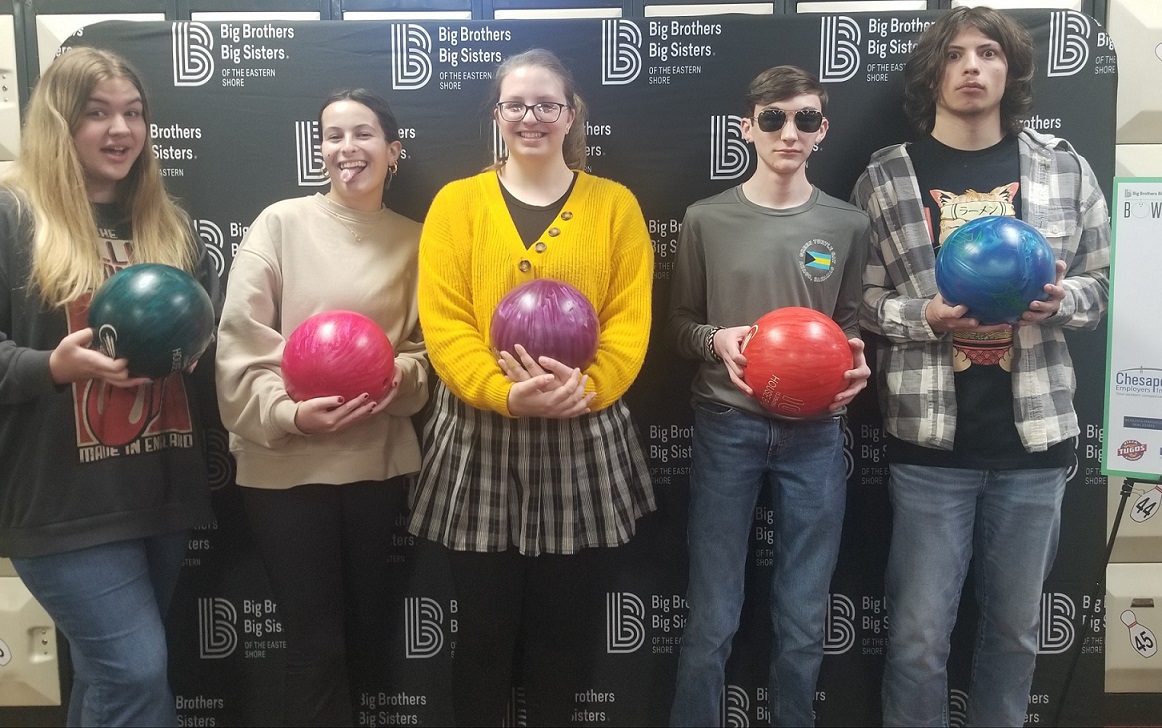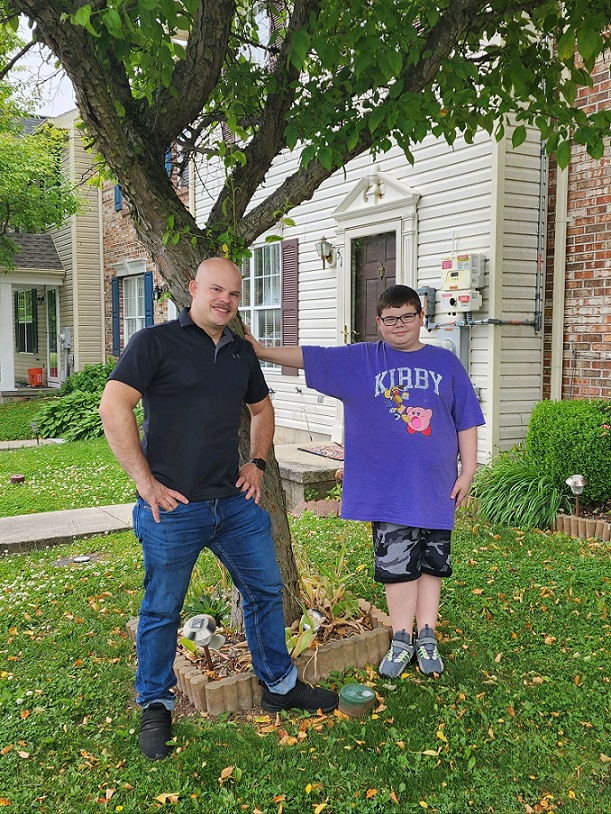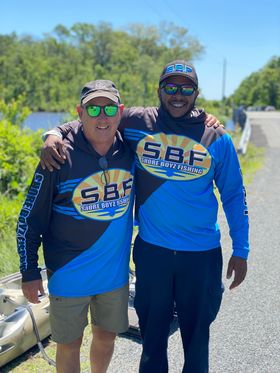
Big Brothers Big Sisters of the Eastern Shore: Mentoring Youth for a Positive Impact
Big Brothers Big Sisters of the Eastern Shore (BBBSES) has a mentoring formula that works. An older person (known as a “Big” in the lingo of this organization) is matched with a young person (a “Little”) to provide mentoring and guidance. That’s quite a feat considering we’re talking about providing matches to a territory wherein some 85,350 children reside.
Of course, not all of those children will become Littles, but enough of them do to make this an impressive operation run in large measure on volunteer steam. We feel sure they will put our small grant award to good use. We sent off some questions to BBBSES Partnership & Development Associate Li-Ann Piposzar to find out more about more about Big Brothers Big Sisters as both a national and local phenomenon:
Kars4Kids: The Eastern Shore covers quite a large area. What can you tell us about your demographic—the kids you serve?
Li-Ann Piposzar: Big Brothers Big Sisters of the Eastern Shore (BBBSES) offers free programs to local youth facing adversity between the ages of 6-16 years old in all nine counties on the Eastern Shore of Maryland. Programs include traditional one-to-one community-based mentoring, site-based mentoring, group mentoring, and youth enrichment. Most of the children in the program come from single parent homes, live with a grandparent(s), have a parent that is incarcerated or impacted by opioids.
Kars4Kids: Can you explain for us the concept of “Bigs” and “Littles?” What ages are we speaking of? Do Littles sometimes become Bigs when they age out?
Li-Ann Piposzar: “Bigs” are regular people like you and me, that are 18+ years old and from diverse backgrounds. They are adults that mentor youth to make a positive impact, share life experiences, and provide guidance during times of need. “Littles” are children facing adversity that want/need an additional trustworthy adult in their life. Some Littles (mentees) grow up to become mentors, volunteers, or employees of nonprofits when they become older. According to Mentor, “78% of young adults with a mentor are more likely to volunteer regularly and 90% are interested in becoming a mentor.”
Kars4Kids: The mentors are volunteers, right? How many mentors do you currently have and how many children are they mentoring? Do some “Bigs” have more than one “Little?”
Li-Ann Piposzar: Mentors in the BBBSES program are all volunteers. The organization started nearly 120 years ago with a one-to-one mentoring model to give children individualized attention. Since that time additional programs including group mentoring and enrichment workshops have been developed to meet the needs of families and the community. Last year the agency served over 500 children through over 4,000 volunteer hours. The agency has a few Bigs that mentor more than one youth, but the Big still meets with each Little individually.
Kars4Kids: How does the mentoring program work? How often do Bigs and Littles meet? How do they spend their time together?
Li-Ann Piposzar: Mentoring matches are made based on location, preferences, shared interests, and personality. A case manager facilitates an introductory meeting where a Big meets their Little and their family. Bigs and Littles meet around twice a month for about 1-2 hours. Mentoring matches do activities they both enjoy that are free and low cost. A case manager collaborates with the match to develop goals and assist with planning activities. For the duration of the mentoring relationship the Case Manager collaborates with the match to help ensure their success. The agency also hosts activities for mentoring matches and provides resources to them and the family.
Kars4Kids: Can you describe for us the process of matching Bigs to their Littles?
Li-Ann Piposzar: After Guardians and Bigs go through the enrollment and safety screening, a case manager shares profiles based on common interests and preferences. An introduction meeting between the Big, Little, and Guardian is scheduled. During this meeting, the case manager will help the pair schedule their first outing and assist with setting goals for the Match. Case managers work with the child, mentor, and family to help navigate the relationship and evaluate progress.
Kars4Kids: You have both community-based mentoring and site and school-based mentoring. Can you give us an overview of these two mentoring tracks?
Li-Ann Piposzar: Community-based mentoring allows Bigs and Littles to spend time in the community doing fun and interactive activities while working toward personal achievement and positive character development. Site-based (including school) mentoring focuses on personal success and academic achievement through weekly mentoring sessions at the child’s school. The difference between the two types of mentoring is about location: the setting in which mentoring sessions take place. Often a mentoring relationship that begins as a site-based match transfers to the community program to further develop their relationship.
Kars4Kids: How does your High School and College Bigs program work? How does it differ from your regular Bigs and Littles mentoring program?
Li-Ann Piposzar: High School Bigs engages high school students as peer mentors for elementary school youth. High school students will gain a special friend and have fun with their Little by playing games; going to the playground; completing staff-directed activities to build soft skills such as confidence, character, conflict resolution; and hanging out as a way to increase the Little’s self-esteem. We have many College Bigs participating in the community and site-based programs, as well.

Kars4Kids: What is “Bigs in Blue?” How does it work?
Li-Ann Piposzar: Bigs in Blue connects youth with first responders to help create strong communities. This program is a partnership between the first responder organization and BBBSES. Bigs in this program can do either site-based or community-based mentoring depending on the Big’s preference.
Kars4Kids: Can you give us one or two success stories? We’d love to hear about the kids.
Li-Ann Piposzar: One of our successful mentoring matches is a hybrid mentoring relationship. For half of the year, the Big Sister spends her time out of state, but the match maintains the relationship via video calls over Facetime or Zoom. This match really enjoys planting flowers and vegetables during the summer and work on improving reading and academics during the school year. Recently, they spent the entire day choosing seeds to make a garden for the Little Sister to enjoy at home.
Our longest-known local match has lasted 29 years. Big Brother and Little Brother met when Little Brother was 9 years old. Little Brother was the Best Man at Big Brother’s wedding. When Little Brother got married, he returned the favor and Big Brother was his Best Man. They still talk to each other almost every day. They are both big supporters of BBBSES.
Kars4Kids: What’s next for Big Brothers Big Sisters of the Eastern Shore?
Li-Ann Piposzar: BBBSES has three things that we have started and/or are working on. First is “Big Moments.” This is a summer campaign for participants in our program. Participants are challenged to complete exciting summer activities together to compete for fun prizes. Second is the “Be a SHEro” Campaign which will raise awareness of the need for female mentors and encourage all girls and women to become SHEros (Strong, Helpful, Encouraging, Reassuring, and One-of-a-kind.) Finally, we are hosting our 14th Annual Eastern Shore Golf Classic on August 7th at the River Marsh Golf Club at the Hyatt Regency in Cambridge, MD to raise funds for our charity. We are looking for sponsors and golfers. If you are interested call us at 410-543-2447.